Folly to Be Wise (1953)
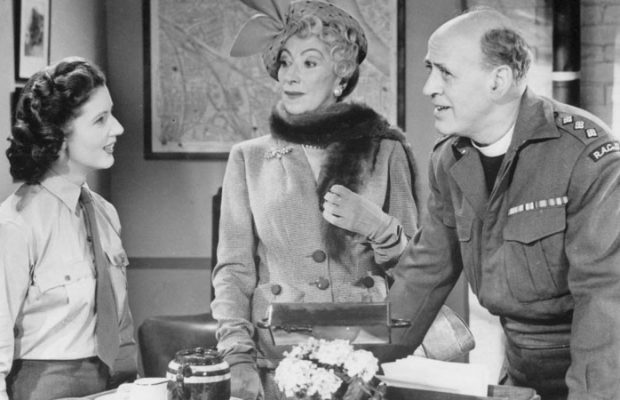
Toronto Film Society presented Folly to Be Wise (1953) on Monday, July 9, 2020 in a double bill with Sixty Glorious Years as part of the Season 65 Summer Series, Programme 1.
Production Company: British Lion Film Corporation. Producers: Sidney Gilliat and Frank Launder. Director: Frank Launder. Screenplay: Frank Launder and John Dighton, based on a play by James Bridie. Music: Temple Abady. Cinematographer: Jack Hildyard. Editor: Thelma Connell. Art Direction: Arthur Lawson.
Cast: Alastair Sim (Rev. William Paris), Elizabeth Allan (Angela Prout), Roland Culver (George Prout), Colin Gordon (Professor Mutch), Martita Hunt (Lady Dodd), Janet Brown (Jessie), Peter Martyn (Walter), Miles Malleson (Dr. Hector McAdam), Edward Chapman (Joseph Byres M.P.), George Cole (Solider in Brains Trust audience).
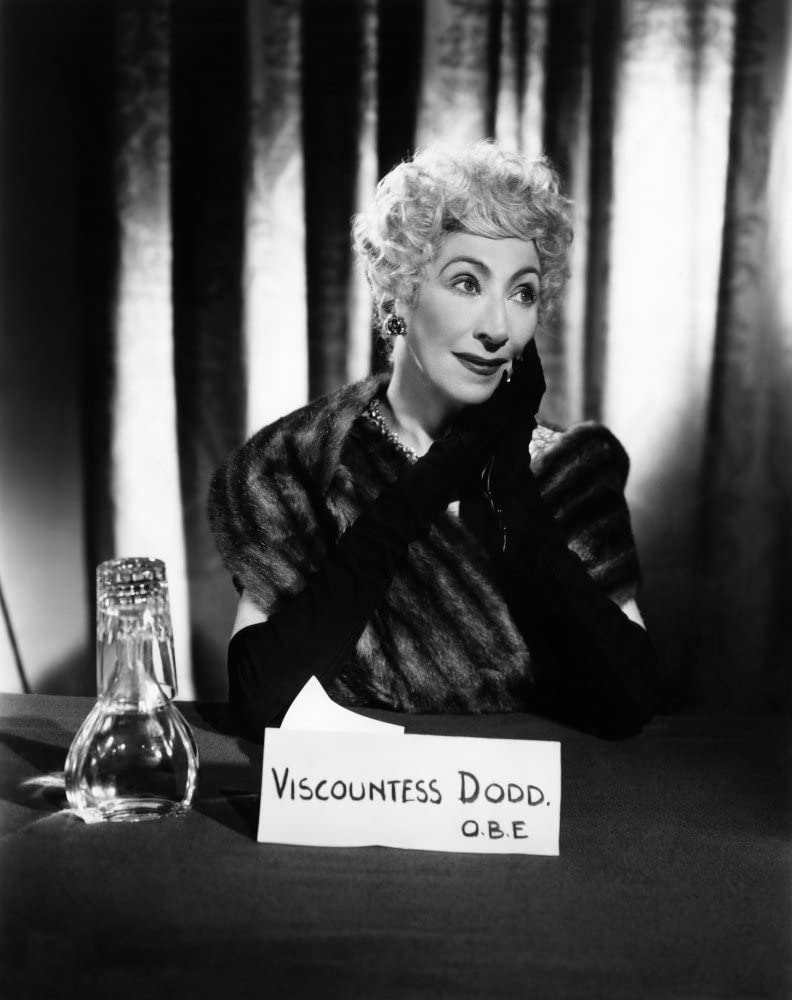
The title comes from the closing lines of “Ode on a Distant Prospect of Eton College” by Thomas Gray (1768): “Where ignorance is bliss, /’Tis folly to be wise”
Much of this film revolves around setting up a “Brains Trust” as entertainment. This was once a very popular phenomenon in Britain, but one that modern audiences may be unaware of. The original “Brains Trust” was a popular BBC radio and TV program during the 1940s and 50s. It quickly became one of the most popular informational programs of all time. 30% of the British population tuned into the show each week, which ran in a prime Sunday afternoon time slot. It regularly generated four to five thousand letters each week from the general public.
The program’s format was simple: listeners sent in questions on all sorts of subjects, and panel members answered them. Panellists were chosen for the contributions each could bring to the subject matter, from the most erudite and serious to the comical. At first all sorts of questions were allowed, but eventually questions about religion or politics were banned (following complaints from the Church and the Government, it should be noted, not the listening public). Apart from those limitations, the program was lively, free-wheeling, completely unscripted and unrehearsed. This produced an edge-of-the-seat excitement to the broadcast which added to its popularity. The program made a successful transition to television in the 1950s and continued for many years.
ELIZABETH ALLAN was a British actress who became familiar to U.S. audiences for a time in the 1930s when she worked in Hollywood under contract to MGM. While in California, Allan played major roles such as Freddie Bartholomew’s sweet young mother in David Copperfield and imperiled Lucie Manette in A Tale of Two Cities (both 1935). She was oddly typecast at MGM as a woman who dies in childbirth – her fate in Men in White (1934), David Copperfield (1935) and A Woman Rebels (1936). Allan was soon very frustrated by the limitations of Hollywood’s studio system. She was upset to be cast in Tod Browning’s horror mystery Mark of the Vampire (1935), which she considered trash. Utterly fed up after being replaced by Rosalind Russell in The Citadel (1938), Allan sued MGM, which finished her career in the United States. She returned to make films in Britain, eventually making over 50 movies. In the 1950s, Allan was a frequent, popular panelist on television game shows, including the British version of What’s My Line?. A true star of the emerging technology, Elizabeth Allan was named Great Britain’s Top Female TV Personality of 1952. She died in 1990, at 82.
In addition to her stellar work on British stage and screen, veteran actress MARTITA HUNT was a respected acting coach. In 1933, young hopeful Alec Guinness studied with her, but as he later recalled, “After a few lessons, she sent me packing.” She bluntly advised him, “You’ll never make an actor, Mr. Guinness.” Nonetheless, as she came to know him better, Hunt became an important mentor in his early career. Six years later, in 1939, Hunt appeared as Miss Havisham in a well-received stage production of Great Expectations – an adaptation written by Alec Guinness, by then a rising star, in which he played Herbert Pocket. After a long pause (World War II) director David Lean used the 1939 Guinness adaptation of Great Expectations for his renowned 1946 film version. Martita Hunt and Alec Guinness reprised their original stage roles for the movie, which was Guinness’ film debut. Martita Hunt’s unforgettable Miss Havisham – imperiously swathed in dust and decayed lace, bitter, manipulative and twisted – is her best-known movie role.
Unique character actor ALASTAIR SIM – fondly described by comedian Ronnie Corbett as a “sad-faced actor, with the voice of a fastidious ghoul” – was born in Edinburgh in 1900, the fourth child of a prosperous businessman. After an excellent education, he became an elocution and drama lecturer at the University of Edinburgh in 1925. After teaching for five years, Sim realized that lecturing was not enough. The acting bug had bit him, and he made his stage debut. After attempts to juggle both careers, Sim left teaching for acting in 1930.
While appearing in the stage production of William Butler Yeats’ The Land of Heart’s Desire, Sim met his future wife, Naomi Plaskitt. Though they truly were meant for each other, there was a problematic issue of age: she was then only 12 years old, and he was 27. The couple patiently bided their time, and married soon after Naomi turned 18. This proved to be no brief romance; they remained happily married until Sim’s death in 1976.
This film features Sim’s foster son and protégé, GEORGE COLE in a small part. Cole plays the soldier offering his “vote of thanks” to the padre for his efforts in organising the show, at the end of the film. This is one of eleven films Sim and Cole made together. During World War II, Sim and Naomi lived in the countryside and took in children who were sent away from London to escape the blitz. Among these was Cole, who arrived aged 15 and stayed with them until he was 27. Though he was not formally adopted, as he had living parents, Cole became their foster son. Under Sim’s tutelage, Cole went on to become a very successful actor. During the war, the Sims also had their only biological child, daughter Merlith.
Sim’s earliest successes as a leading man included the police detective in the thriller Green for Danger (1946) and as the headmaster in the comedy The Happiest Days of Your Life (1950). In 1950, he was voted most popular film actor in Britain. But acting was only one facet of Sim’s career. He returned to the University of Edinburgh in 1948 to serve as rector, and remained in that post until 1951. This didn’t curtail his film work. He played the definitive Scrooge in 1951’s A Christmas Carol (a role he revisited when he voiced the character in an animated 1971 version).
Sim was ambivalent about fame, and seldom signed autographs. In a rare interview he said, “I stand or fall in my profession by the public’s judgment of my performances. No amount of publicity can dampen a good one or gloss over a bad one.” Another time, he enjoyed pulling the interviewer’s leg a bit when asked about his past: “As I passed imperceptibly from a beautiful child to a strong, handsome lad, I wanted more than anything else in the world to be, of all things, a hypnotist. I practiced on gentle dogs…” Sim always insisted on maintaining his integrity; in 1959 he successfully sued the makers of a televised baked beans commercial (which featured a voiceover sounding uncannily like him), claiming he would not “prostitute his art” by ever advertising anything.
Sim was made a Commander of the British Empire (CBE) in 1953. Like his father before him, he later refused a knighthood. He remained an academic at heart. When he died in 1976, Sim donated his body for scientific research.
In 2008, Sim was honoured with a commemorative English Heritage plaque at his old London residence, 8 Frognal Gardens. Both his children, George Cole and Merlith Sim, proudly attended the event. Merlith amused the crowd when she said that as a child “I was slightly embarrassed by people constantly staring at Alastair, but I just put it down to his baldness.”
Notes by Paddy Benham

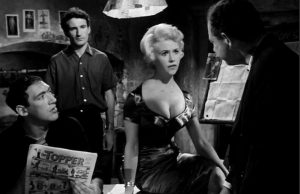
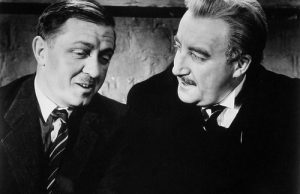
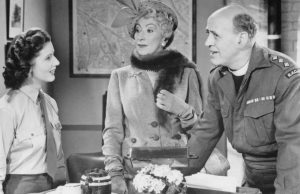






Leave a Reply